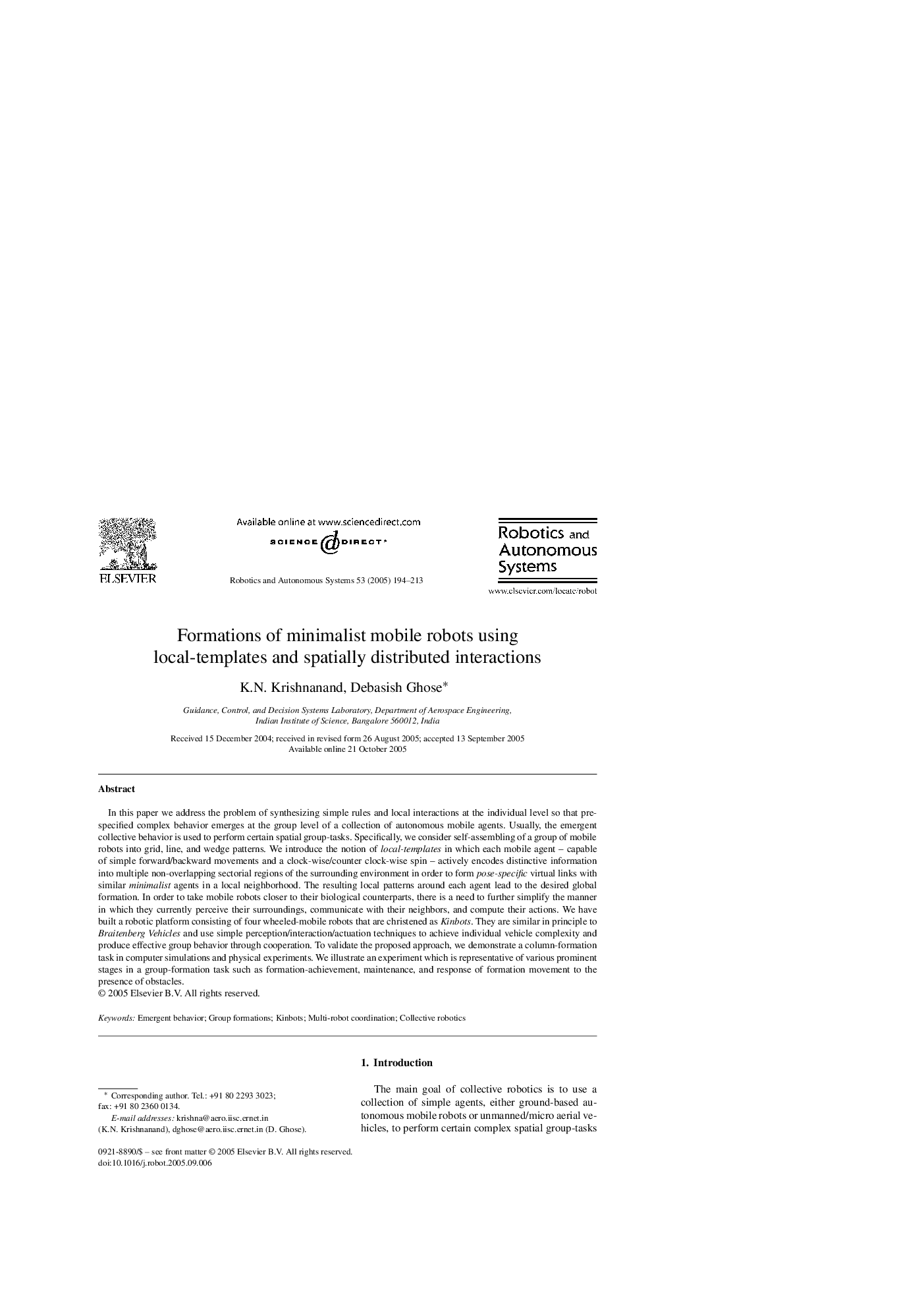| کد مقاله | کد نشریه | سال انتشار | مقاله انگلیسی | نسخه تمام متن |
|---|---|---|---|---|
| 9654528 | 680584 | 2005 | 20 صفحه PDF | دانلود رایگان |
عنوان انگلیسی مقاله ISI
Formations of minimalist mobile robots using local-templates and spatially distributed interactions
دانلود مقاله + سفارش ترجمه
دانلود مقاله ISI انگلیسی
رایگان برای ایرانیان
کلمات کلیدی
موضوعات مرتبط
مهندسی و علوم پایه
مهندسی کامپیوتر
هوش مصنوعی
پیش نمایش صفحه اول مقاله

چکیده انگلیسی
In this paper we address the problem of synthesizing simple rules and local interactions at the individual level so that pre-specified complex behavior emerges at the group level of a collection of autonomous mobile agents. Usually, the emergent collective behavior is used to perform certain spatial group-tasks. Specifically, we consider self-assembling of a group of mobile robots into grid, line, and wedge patterns. We introduce the notion of local-templates in which each mobile agent - capable of simple forward/backward movements and a clock-wise/counter clock-wise spin - actively encodes distinctive information into multiple non-overlapping sectorial regions of the surrounding environment in order to form pose-specific virtual links with similar minimalist agents in a local neighborhood. The resulting local patterns around each agent lead to the desired global formation. In order to take mobile robots closer to their biological counterparts, there is a need to further simplify the manner in which they currently perceive their surroundings, communicate with their neighbors, and compute their actions. We have built a robotic platform consisting of four wheeled-mobile robots that are christened as Kinbots. They are similar in principle to Braitenberg Vehicles and use simple perception/interaction/actuation techniques to achieve individual vehicle complexity and produce effective group behavior through cooperation. To validate the proposed approach, we demonstrate a column-formation task in computer simulations and physical experiments. We illustrate an experiment which is representative of various prominent stages in a group-formation task such as formation-achievement, maintenance, and response of formation movement to the presence of obstacles.
ناشر
Database: Elsevier - ScienceDirect (ساینس دایرکت)
Journal: Robotics and Autonomous Systems - Volume 53, Issues 3â4, 31 December 2005, Pages 194-213
Journal: Robotics and Autonomous Systems - Volume 53, Issues 3â4, 31 December 2005, Pages 194-213
نویسندگان
K.N. Krishnanand, Debasish Ghose,